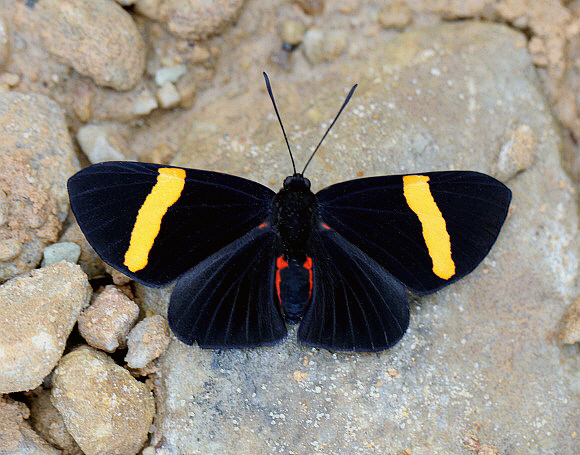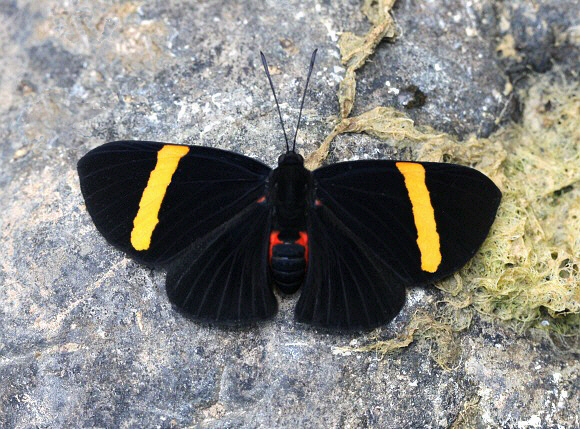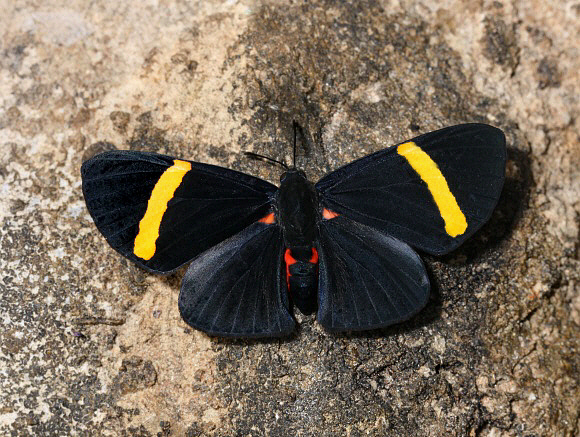 Melanis marathon, Pauti, Junin, Peru – Adrian Hoskins
Melanis marathon, Pauti, Junin, Peru – Adrian Hoskins
Introduction
The name Melanis refers to the melanic pigment of the black scales which cover the distinctively shaped wings of all members of this genus. Many Melanis species are marked with orange borders on the hindwings, and / or similarly coloured diagonal bands on the forewings. In some species the apex of the forewings is orange, and in others there are large red spots near the base of the wings.
There are 27 known members in the genus. One particularly attractive species, M. pixe, has a range extending from Mexico to Panama, but the majority of species are found in the Andes mountains, or in the Amazonian lowlands.
Melanis marathon occurs in Colombia, Ecuador and Peru; and the Atlantic coast forests of Brazil.
 Melanis marathon, Rio Shima, Peru – Adrian Hoskins
Melanis marathon, Rio Shima, Peru – Adrian Hoskins
Habitats
This butterfly inhabits the foothills of the eastern Andes at elevations between about 400-1000m. It can be found flying throughout the year but is commonest in the early part of the dry season.
Lifecycle
I have no information specific to marathon but the lifecycle is likely to be similar to that of other Melanis species : The larvae are hairy, and feed gregariously on the leaves of trees in the family Leguminosae. The pupae are said to be formed in clusters on tree trunks.
Adult behaviour
The butterflies have a slow fluttery flight typical of aposematic species, drifting gracefully above the vegetation at a height of about 1-2m above ground level. Males can sometimes be found imbibing mineralised moisture from sandy river beaches, and are reported to fly around the canopy of Samanea trees in search of females. Both sexes nectar at Inga, Cordia, Albizia and Citrus.

Melanis marathon, Satipo, Peru – Adrian Hoskins
